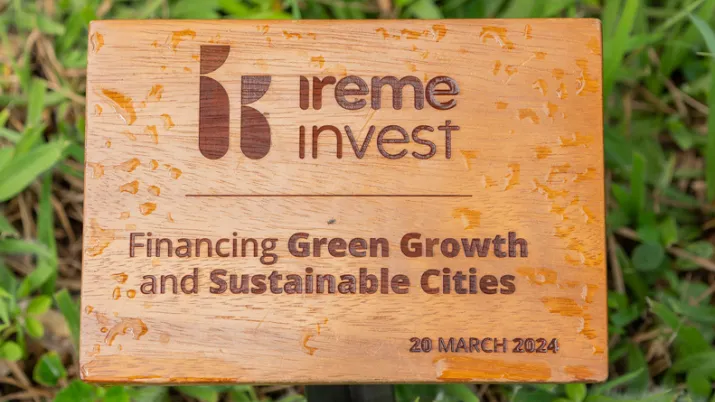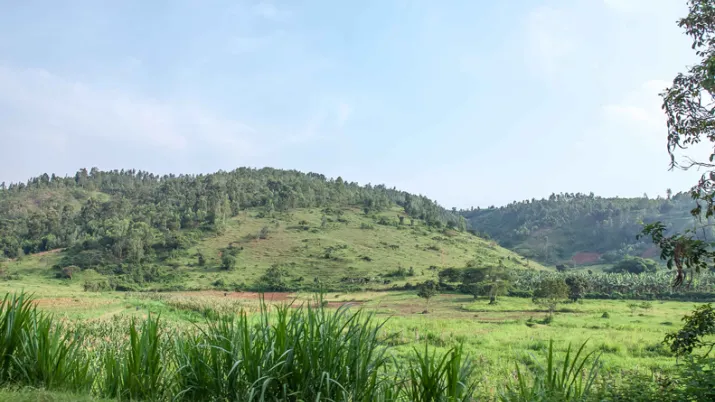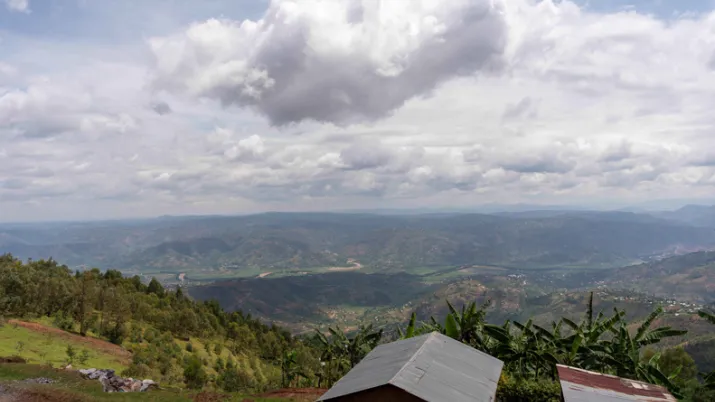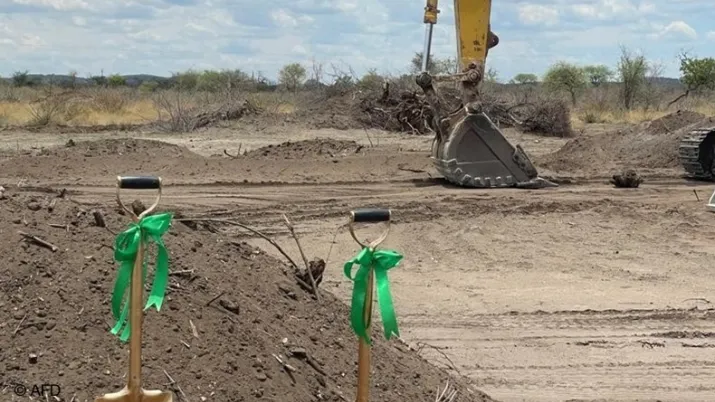Share the page
Aligning Rwanda’s public and private finance with climate goals
Project


-
Project start date
-
Status
Ongoing
-
Project end date
-
-
Project duration
-
3 years
-
AFD financing amount
-
€ 53,000,000
-
Country and region
-
Location
-
Rwanda
-
Beneficiaries
-
Republic of Rwanda
-
Type of beneficiary
-
State
AFD supports the Government of Rwanda in aligning public and private financial flows with national climate objectives through a program that strengthens climate-sensitive public financial management and enhances the financial sector’s capacity to manage climate-related risks and reporting, and mobilize sustainable finance.
Context
Rwanda stands on the frontline of climate change.
Its rugged terrain and reliance on rain-fed agriculture make it acutely vulnerable to increasingly erratic rainfall, prolonged droughts, floods, and landslides. Agriculture sustains over 70% of the population and underpins key exports like tea and coffee — meaning climate shocks directly threaten livelihoods, food security, export earnings, and rural stability.
While Rwanda contributes only a fraction of global greenhouse gas emissions, the cost of adapting to climate change and delivering on its updated Nationally Determined Contribution (NDC) is immense — an estimated US$ 11 billion by 2030, nearly equivalent to the nation’s annual GDP.
The country has already taken bold steps — from committing to carbon neutrality by 2050 to becoming the first African country to access the IMF’s Resilience and Sustainability Facility (RSF) — but gaps remain. Public finance systems are not yet fully equipped to ensure all public investments and spending decisions are climate-aligned, the financial sector has limited capacity to manage climate-related risks or mobilize significant green capital and climate data and monitoring systems need strengthening to guide investment decisions and measure impact.
Description
AFD’s Green PFM program, in close synergy with the IMF RSF reforms, aims to supports Rwanda’s climate transition by:
-
strengthening climate-sensitive public finance by ensuring investment decisions, budget allocations, and public procurement processes are aligned with the country’s climate goals.
-
greening the financial sector by strengthening the integration of climate risks in the banking system and encouraging financial institutions to mobilize more capital towards climate-related investment impacts.
AFD’s support combines a €50 million program-based loan to finance the reform roadmap agreed with the IMF under its Resilience and Sustainability Facility (RSF). Disbursements are linked to clear reform milestones. A €3 million technical assistance program, implemented by Expertise France, to accelerate and deepen reform implementation – especially in areas with high climate impact that fall outside the RSF scope.
Impact
-
Smarter public investments – Major infrastructure and development projects will be appraised and prioritized based on their climate impact, ensuring that Rwanda’s investment pipeline supports adaptation and low-carbon growth.
-
Transparent climate spending – Climate budget tagging will track and disclose both positive and negative climate-related expenditures, helping citizens, policymakers, and partners see how public funds advance national climate goals.
-
Aligned public finance – Budget allocations and public investments will be systematically aligned with Rwanda’s climate commitments under its NDC, ensuring that every franc spent contributes to resilience and mitigation.
-
Greener government procurement – Public purchasing decisions will integrate sustainability criteria, creating demand for greener goods and services while steering markets toward climate-friendly solutions.
-
A resilient financial system – The National Bank of Rwanda will integrate climate risk into supervision and regulation, supported by new standards for ESG reporting and disclosure. This will strengthen financial stability while unlocking more green capital.
-
A financial sector fit for climate action – Banks and financial institutions will have the tools, frameworks, and capacity to manage climate risks, increase transparency, and scale up financing for climate-smart investments.
Reliable climate data – Stronger monitoring, reporting, and verification (MRV) systems will provide trusted data to guide decision-making, measure progress, and attract international climate finance to support Rwanda’s transition.










